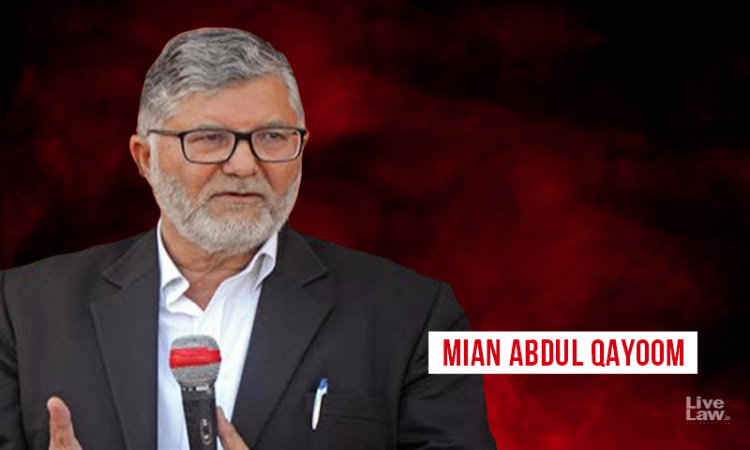J&K Bar Association President Moves SC Against HC Order Upholding His Detention Under PSA
Sanya Talwar
25 Jun 2020 9:55 PM IST

Next Story
25 Jun 2020 9:55 PM IST
The Supreme Court will hear tomorrow a plea challenging the Jammu & Kashmir High Court's order, upholding the detention of Bar Association President Mian Abdul Qayoom.A vacation bench comprising Justices Sanjay Kishan Kaul & BR Gavai shall take up the Special Leave Petition at 11.30 AM against dismissal of the habeas corpus petition which challenged the preventive detention of the...
